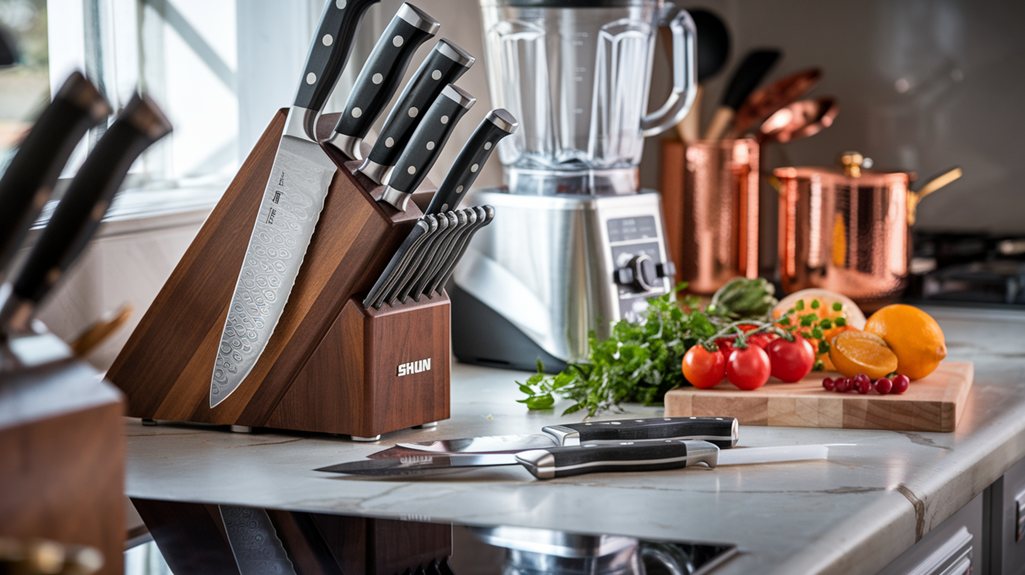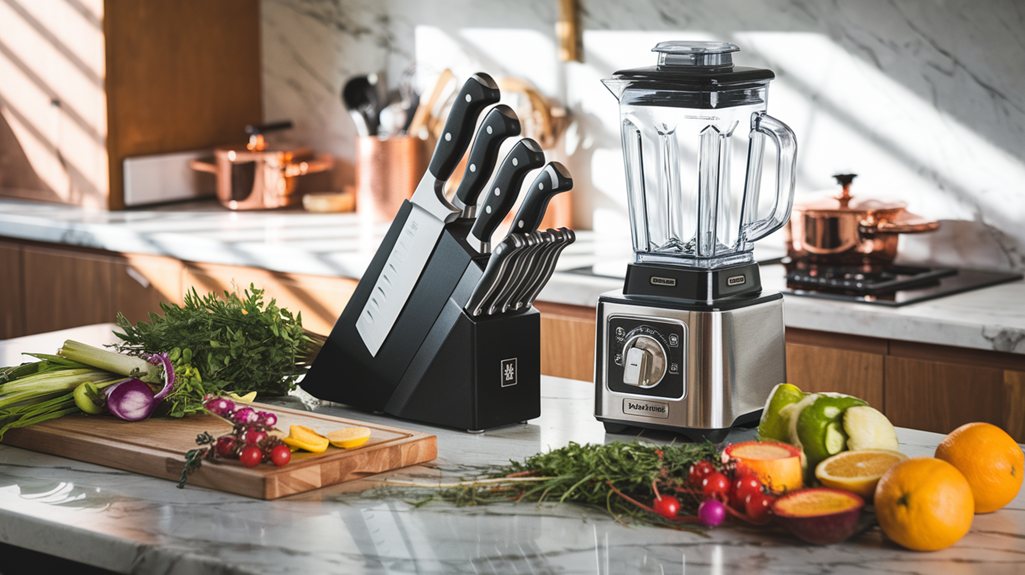While Shun's high-hardness VG10 and SG2 steels (61 Rockwell) deliver exceptional sharpness, they can chip if you're not careful with your cutting technique. You'll need to avoid rough chopping, frozen foods, and bones – instead, use smooth, controlled motions on softer cutting boards like Hinoki or maple. With proper handling and regular maintenance, your Shun knife will maintain its superior edge retention. Let's investigate exactly how to protect your investment.
Key Notes
- Shun knives can be prone to chipping due to their high hardness rating of 61 on the Rockwell scale.
- Improper cutting techniques, like chopping straight down or cutting frozen foods, significantly increase the risk of blade chipping.
- Using soft cutting boards and proper sawing motions help prevent chips in the brittle high-hardness steel.
- Regular maintenance and careful handling are essential to avoid chips, as Shun's premium steels prioritize sharpness over durability.
- Compared to German knives, Shun's harder steel offers better edge retention but requires more careful handling to prevent damage.
Understanding Shun's Steel Composition and Hardness
While Shun knives are renowned for their exceptional sharpness, their high-hardness steel composition is both a blessing and a potential challenge.
You'll find these Japanese-crafted beauties using premium steels like VG10 and SG2, which rank an impressive 61 on the Rockwell scale! This hardness gives you amazing edge retention, but it's crucial to understand that the steel is more brittle than softer alternatives.
Think of it like a sports car – powerful performance requires careful handling. The steel composition that makes your Shun so incredibly sharp also means you'll need to master proper cutting techniques to protect your investment.
When you're working with such hard, thin Japanese steel, it's important to avoid rough chopping motions that could stress the blade's structure.
The Damascus steel patterns on each blade showcase both aesthetic beauty and traditional Japanese craftsmanship.
Founded by Saijiro Endo in Seki, Japan, Shun Cutlery continues to blend modern materials with traditional handcrafting techniques to create their exceptional knives.
Preventing Chips: Proper Usage and Maintenance Tips
Taking proper care of your Shun knife's high-hardness steel requires specific handling techniques and maintenance habits.
To protect your investment, you'll want to stick with softer cutting boards made from materials like Hinoki or maple, as harder surfaces can damage your blade's edge.
Regular honing keeps your knife in top shape, and you should do it a few times weekly to maintain that razor-sharp performance.
When you're cutting, use a smooth, sawing motion instead of chopping straight down – your knife will thank you for it!
Keep in mind that your Shun isn't meant for tough jobs like cutting frozen foods or bones, so keep it away from those tasks.
Ultimately, check your blade regularly for wear and get it properly sharpened when it starts losing its edge.
While some prefer German knife brands like Wüsthof for their durability, Shun's Japanese steel offers superior edge retention when properly maintained.







